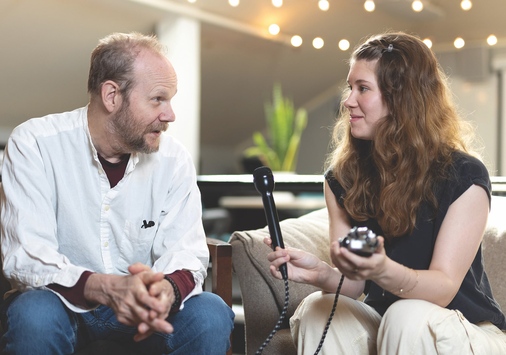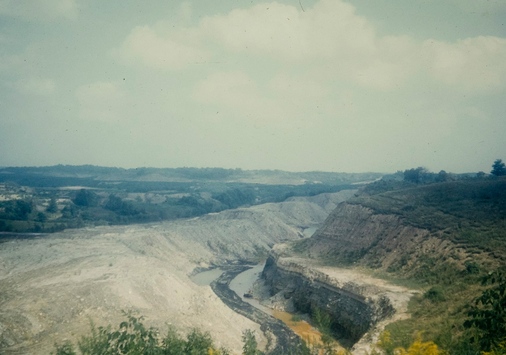
When journalist Molly Born lived in Mingo County, West Virginia, she recorded audio stories huddled under a comforter in her bedroom closet, instead of using a professional sound studio.
At the time, she was in the rural coalfields of southern West Virginia, a place that felt isolating, culturally different from her northern WV home in Fairmont, she said.
She was doing truly remote reporting, working for the state’s NPR member station in an area with poor cell phone service, and the comforter was the best host for sound production.
“I take pride in being able to make it work,” she said, looking back at her lengths of resourcefulness in Mingo County, during a virtual conversation with Mellon fellow Maggie Messitt.
Her resourcefulness has led her career to expand into three mediums — prose, audio, and film — a vantage point in the field of digital journalism. She recently shared with Denison students how she uses different modes to report on Appalachia.
The online event was part of a Happy Hour series that connects journalism students with acclaimed writers and reporters. While Denison’s campus is closed amid the Covid-19 pandemic, students log into an online portal for a live video conversation with the guest of the week.
Molly Born is a multimedia journalist based in Appalachia, currently the producer on a forthcoming documentary with Academy Award-nominated filmmaker Elaine Sheldon about people’s cultural relationship with coal mining in the region. She is developing a podcast with Virginia Public Media about mutual aid during the Covid-19 pandemic, and she recently was awarded a fellowship to report on the foster care system in West Virginia. Molly was a reporter at the Pittsburgh Post-Gazette for six years before moving back to West Virginia to work for the state’s public broadcasting station through Report for America.
The Appalachian region has been a vulnerable site for parachute journalism by national media, which has stoked a sense of hopelessness in communities that contend with issues such as the opioid crisis and the declining coal industry. Counteracting such narratives, Born tells human-focused stories that often incite hope.
“There are people in the region who are trying to do good work … There are times that are fraught, but so many people can find joy in them,” she said.
She lets her positionality lead her story ideas. “I move through the world as a curious person,” she told students.
Born has produced captivating stories like the collaborative multimedia project “Stirring the Waters,” about water quality issues in Appalachia, which was named a finalist for the Livingston Award for Excellence in National Reporting.
From writing articles to producing radio dailies and long-term film projects, Born said whenever she needs to hone in on a new skill or project, she solicits feedback from people in the media industry. “I crave to be corrected,” she said.
It’s clear that Born is resourceful in many arenas, including relationship building. No matter the medium, she connects with her subjects, often immersing herself into her characters’ lives. “Cultivate relationships and mean it. I’m not about transactional relationships,” she told students.
She encouraged students to start projects of their own, to begin by talking to people in their communities. She explained that the craft takes drive, discipline, and curiosity.
“Write every day, even just chronicling what’s happening in your world,” she said.
The Happy Hour series for journalism students at Denison is funded in part by the Andrew W. Mellon “Writing in Place” initiative and a gift by alumna Sue O’Donnell.















